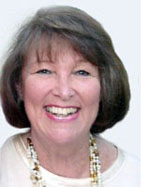By Cynthia Citron

LOS ANGELES — A million years ago I worked in the Public Relations Department at Boston University. At the time there were 72 schools and colleges flourishing in the Greater Boston area, all bombarding the Boston Globe with press releases about their activities and feeling rewarded if that prestigious newspaper granted them a couple of inches to tell their stories in the minuscule section devoted to Education.
During that time my son and a bunch of his buddies decided to play Monopoly non-stop for the three days of a holiday weekend in the elevator of their dorm. Before they had finished the first day, the press turned up to cover the event and all three major television networks brought their cameras. In the end the story ran in papers all over the country and the participants earned a spot in the Guinness Book of World Records. Did I mention that the elevator was located at Harvard?
But that’s the way it was in Boston. Anything that happened at Harvard tended to wipe most of the other schools off the map.
That’s why when a distinguished Harvard professor of psychology, Richard Alpert, went off to India and became an acolyte of a Hindu guru named Neem Karoli Baba, Alpert’s transformation into a spiritual teacher named Ram Dass (meaning, in Sanskrit, “servant of the Lord Rama”) became an ongoing saga in the Globe and in newspapers around the country.
Now, in a new film called Becoming Nobody, Ram Dass presents his metaphysical discoveries and insights in a series of public lectures that are absolutely fascinating. And, much like the film Tuesdays with Morrie that chronicled the thoughts of another professor, Morrie Schwartz, Ram Dass spent time sharing his ideas with the young man, Jamie Catto, who directed Becoming Nobody.
The film begins with Ram Dass, as a baby, learning to live in his “space suit”: the body he was born with. And then, he says, you go into “somebody training” and your parents want to make you into somebody who achieves, is responsible, healthy, successful, and who brings pride to them. But the problem was that he wasn’t comfortable in his “suit”. He felt that he was entering “conspiracies” in which he told other people “I’ll make believe you are who you think you are if you make believe I am who I think I am.”
“We see others as different from ourselves, but one of the characteristics of the psychedelic experience is being with another person and suddenly seeing how like you they are,” he adds.
The next section of the film is introduced by a caption stating “The next message you need is always right where you are,” and Ram Dass talks of his friend Timothy Leary who introduced him to various drugs and changed his life, “because it undercut all the models of who I thought I was. I wasn’t this or that, I was just ‘I am’.”
He spent the next seven years trying to solidify that “presence” within himself by experimenting with a variety of psychedelic drugs, but eventually he traveled to India and met his guru. And almost from the very first moments, when they took over his life and his training, he was imbued with a spirit of great joy. And he learned that a guru wasn’t just a wise man, but a doorway to God.
His aim from the beginning was to “get out of my suit,” to get out of “my physical and psychological identity” because it didn’t reflect who he actually was any more and it felt extremely limiting. “Learn to watch your drama unfold while at the same time knowing you are more than your drama,” he advises.
All this he shared with Jamie Catto, and his numerous audiences, winding up his story with a long, succinct monologue about his thoughts on death and dying. “We are all just walking each other home,” he begins. “Death is absolutely safe. It’s like taking off a tight shoe.”
“The more you are aware of the spiritual nature of life the more you see the moment of death as a release,” he adds. “I am one of those strange people who enjoy being with people as they’re dying because I know I’m going to have the opportunity to be in the presence of truth.”
And finally he sums up by repeating the phrase that has become his mantra: “The game is not about becoming somebody, it’s about becoming nobody.”
This extraordinary documentary will open in New York and San Francisco and in Los Angeles at the Laemmle Royal on September 6th. A national release will follow.
*
Citron is a freelance writer who specializes in coverage of the arts. She may be contacted via cynthia.citron@sdjewishworld.com